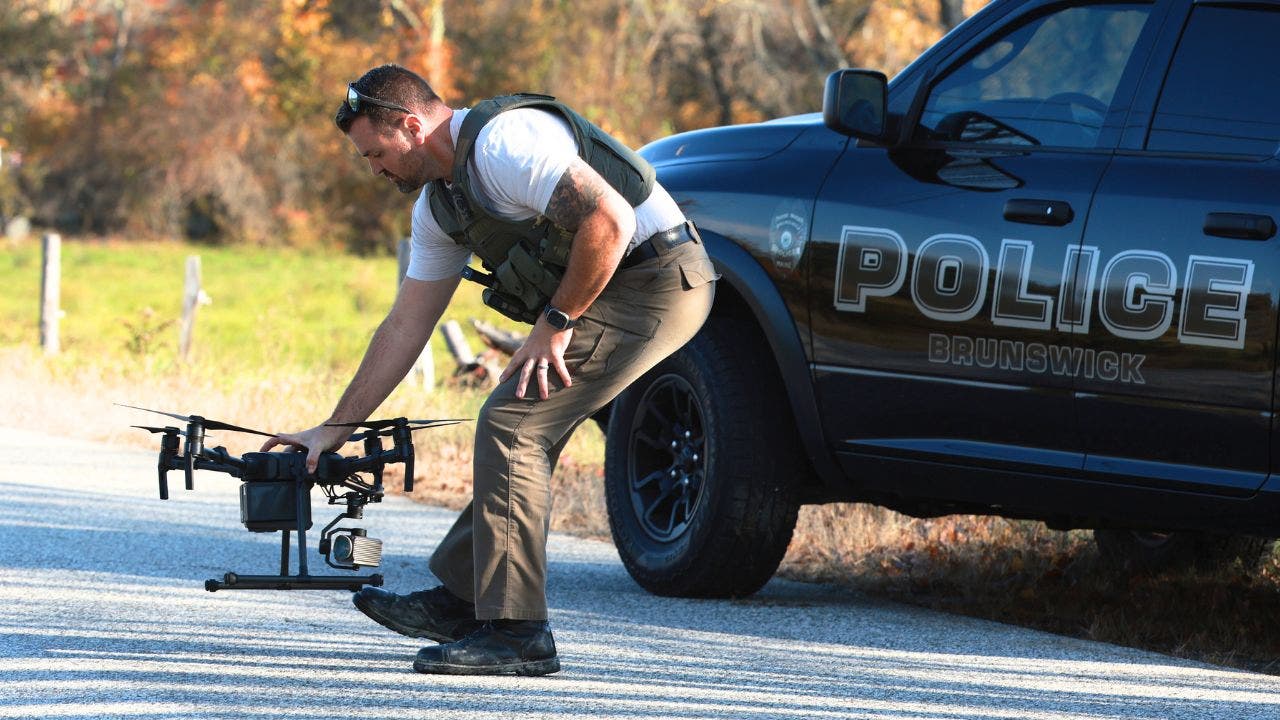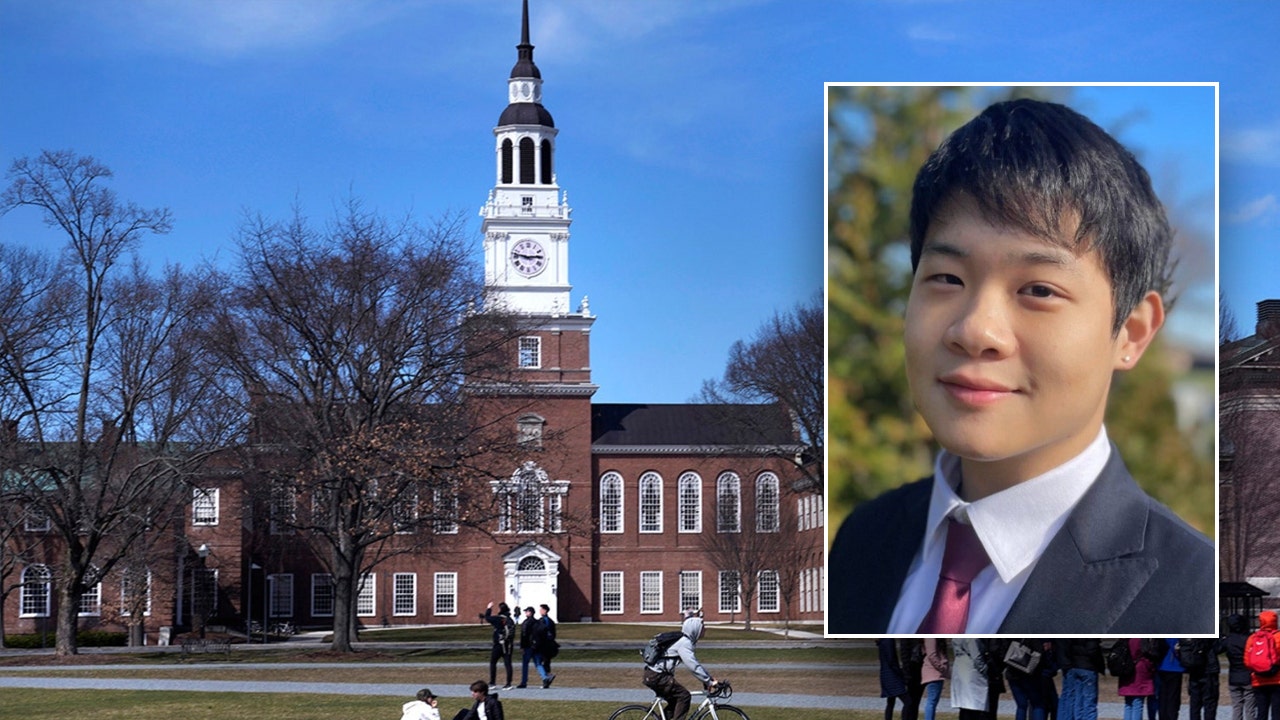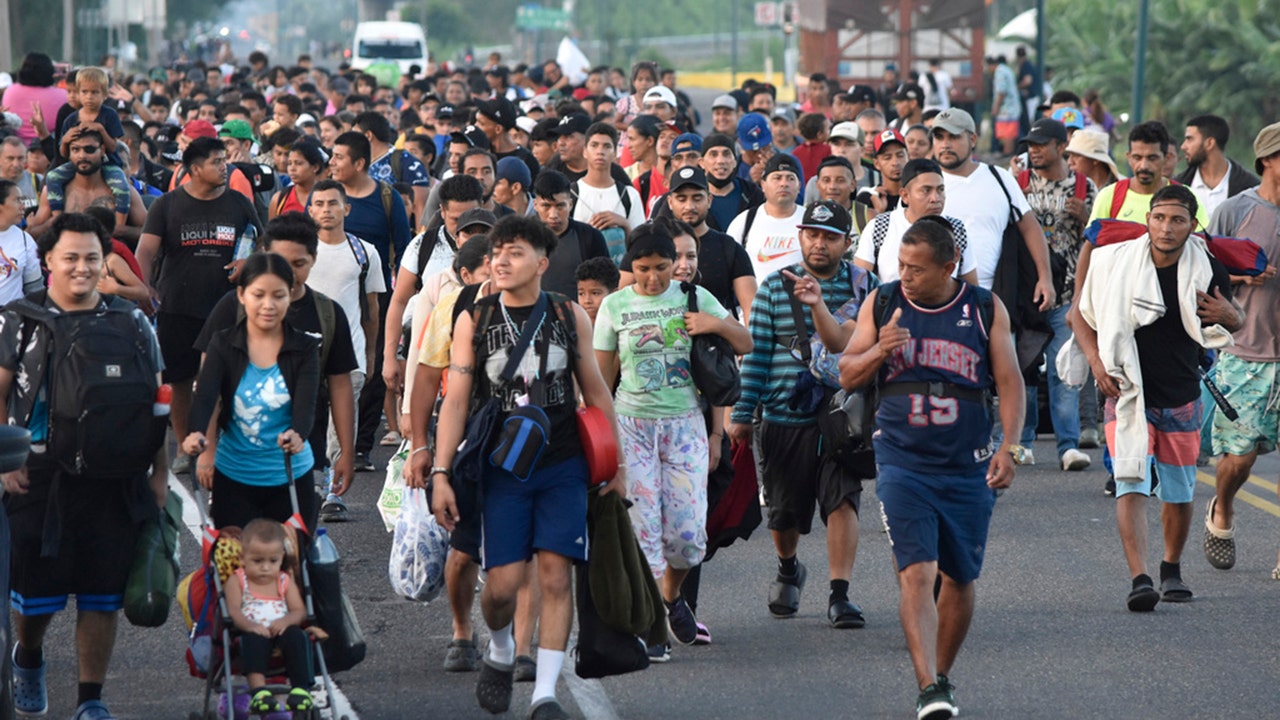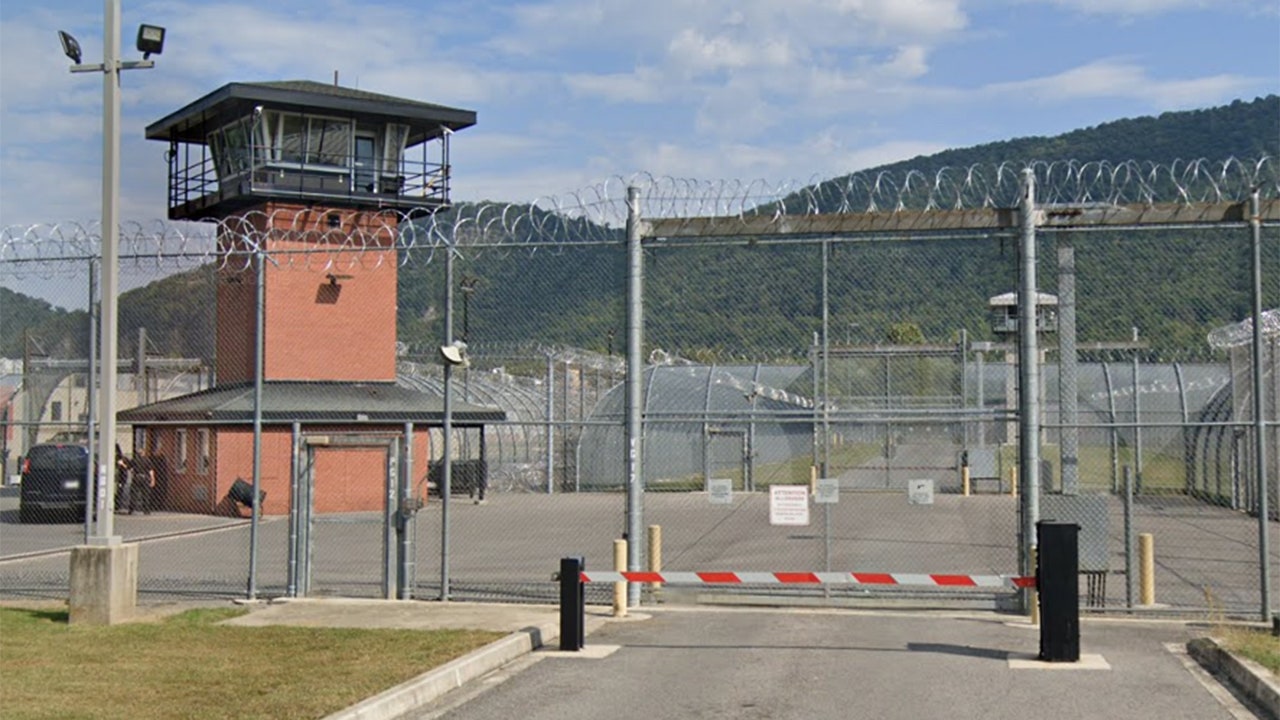Quick, efficient and with a bird’s eye view of any scene, more police departments are embracing the use of drones to carry out law enforcement work, with some blue cities now even using them to respond to 911 calls.
Around 1,500 police departments across the country are currently using drones in some form, according to a report by the Electronic Frontier Foundation, a digital privacy group, with agencies deploying the technology for crowd control purposes, missing people searches, tracking fleeing suspects or mapping crime scenes.
Steep budget cuts and dwindling staff numbers in blue cities, in particular, make drones both an effective and cost-saving tool for police in Democratic strongholds.
COLORADO POLICE PLAN TO USE DRONES AS FIRST RESPONDERS, CALLING THE TECHNOLOGY ‘FUTURE OF LAW ENFORCEMENT’
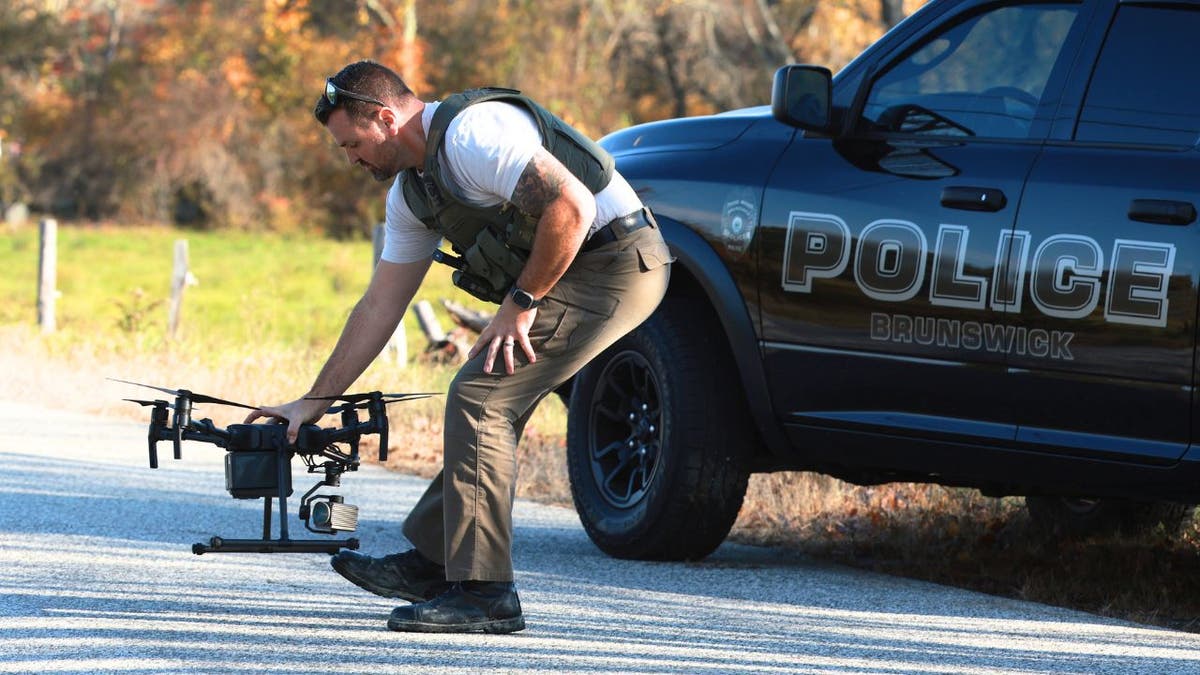
A law enforcement official sets up a drone during a manhunt for suspect Robert Card following a mass shooting on Oct. 27, 2023, in Monmouth, Maine. (Joe Raedle/Getty Images)
Today’s police drones are much bigger than regular drones commonly used for recreational purposes, with much longer battery lives and features such as thermal sensors, loudspeakers, spotlights or beacons.
Several law enforcement agencies in Colorado, including the Denver Police Department, which has seen cuts due to its migrant crisis, are making plans to start dispatching drones instead of officers to respond to 911 calls and at least 20 agencies in Colorado’s Front Range already use drone technology for certain tasks.
The city of Chula Vista, California, was one of the first cities to use drones for 911 calls and has deployed unmanned aircraft nearly 20,000 times since 2018 to respond to emergency incidents such as crimes in progress, fires, traffic accidents and reports of dangerous subjects.
The use of the technology meant that in nearly 4,300 of those cases, officers were not physically required to respond to a location as the situation was properly assessed from a control room. Police in Beverly Hills, Santa Monica, Burbank, Fremont and Hawthorne as well as the Los Angeles County Sheriff’s Department also use the innovative technology in the state.
“Some of the cities that are rolling them out are rolling them out because they have no choice, because they can’t get cops to take the job.”
Last year, Chicago lawmakers passed a bill that allows police to use drones during special events like parades, walks, races but not during protests or demonstrations.
Elsewhere, the NYPD told Fox News Digital that it is rolling out drones to respond to possible 911 calls of shootings in the Big Apple.
“Some of the cities that are rolling them out are rolling them out because they have no choice, because they can’t get cops to take the job,” former NYPD inspector Paul Mauro told Fox News Digital. The NYPD saw an exodus of police in the wake of the defund the police movements, progressive policing reforms and anti-cop rhetoric sparked by the killing of George Floyd in 2020.
“And I think now a lot of cities, blue cities in particular, are starting to realize, well, we’ve thrown the baby out with the bathwater. We need cops. You see it in places like Seattle where they had the CHOPS (Capitol Hill Organized Protest), where they had these police no-go zones and people died. There were murders and all kinds of robberies, so there’s a realization that, OK, we do need policing. The use of technology has always been part of policing.”
“But at the end of the day it’s helpful, and it will potentially take some weight off of police because a drone can get there quickly – especially in a congested area like Manhattan – it can tell you what’s going on and how many cops [you need]. Is it an emergency? Is it a verified shooting? Is somebody bleeding out in the street?”
BEVERLY HILLS POLICE DRONE CATCHES BURGLARY SUSPECT FALL OFF LADDER INTO POOL

More blue city police departments are embracing the use of drones to carry out police work, with some cities now even using them to respond to 911 calls. (Wally Skalij/Los Angeles Times via Getty Images)
Maryland has also witnessed progressive laws to reform policing and the Montgomery County Police Department (MPD) began rolling out its “Drone as First Responder” (DFR) program in October in the wake of rising crime and a staff vacancy rate of 43%, according to police officials.
Since October, the drone system has been deployed over 850 times with an average response time of just under 49 seconds, according to police data.
The system was used mostly for theft, about 33% of the time, with reports of suspicious persons next on the list accounting for 15% of responses. Police say the deployment of drones meant that patrol units were not needed in over 120 instances.
The MPD has hailed the system for apprehending criminal suspects and allowing the agency to be more efficient with police resources by providing real-time information to ground officers.
Meanwhile, the NYPD’s new drone program is being piloted to supplement its gunshot detection system known as ShotSpotter, which alerts police to a possible shooting. Under the new drone system, five police precincts are being trialed to have drones immediately deployed to the scene when such an alert goes off. The five precincts include three in Brooklyn, one in the Bronx, and one in Manhattan at the Central Park Precinct.
A drone pilot remotely based in the NYPD’s Joint Operations Center in Lower Manhattan activates a drone to fly to the location of the gunfire, an NYPD spokesperson told Fox Digital.
“Prior to police officers’ arrival on the scene, officers will see what the drone sees in real time via their smartphones,” the spokesperson said. “This emerging technology stands to enhance situational awareness as officers arrive at scenes, promote officer safety, and help NYPD leadership deploy resources in an effective and efficient manner.”
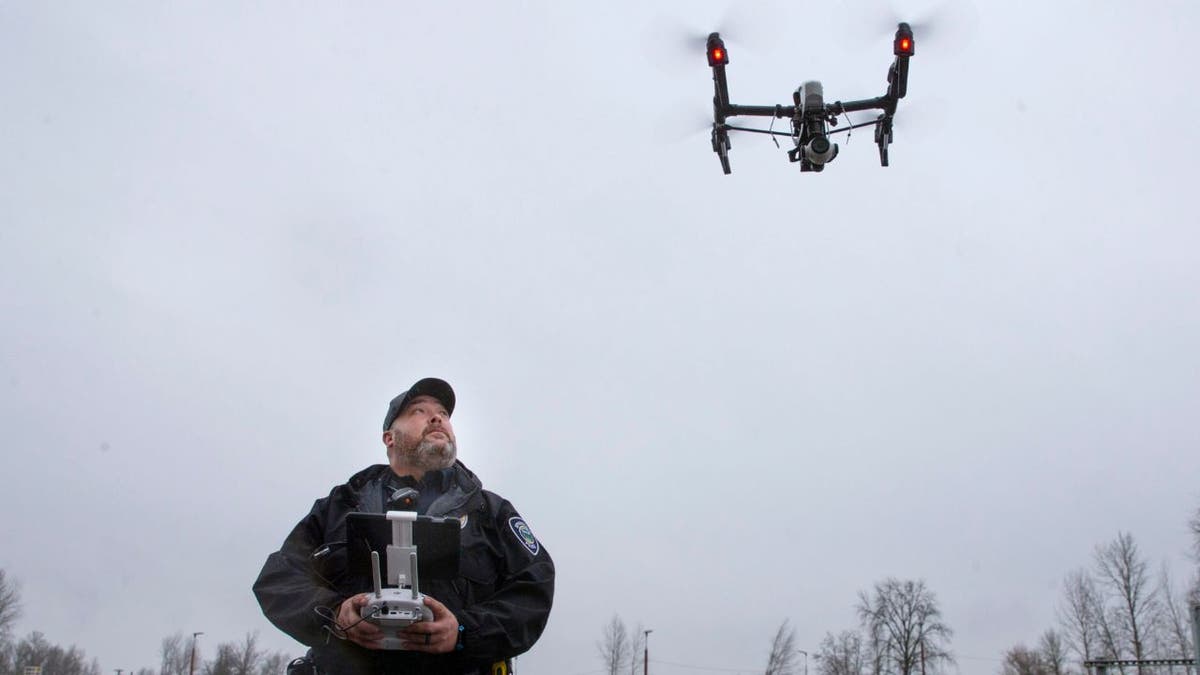
Springfield police officer Tony Del Castillo takes out a new drone for a test flight at the city fuel depot in Springfield, Oregon. (Imagn)
Drone technology is developing at a rapid rate with Amazon already using it to deliver packages to customers.
BRINC, a Seattle-based drone company, has launched a purpose-built 911 response drone that can deliver life-saving medical supplies to a scene, such as EpiPens, defibrillators, personal floatation devices (PFDs) and naloxone (Narcan), as well as assessing low-priority calls without the need to dispatch personnel.
“Undeniably, they are an assist,” Mauro said of police drones. “It’s a force multiplier in departments that just can’t get enough people to cover the ground. In dense urban areas, the drones can get there faster, and very rural areas where it could take a cop 20 minutes to get to the accident site or the scene of the call, a drone can get there very quickly and let you know what you’re getting into.”
However, Mauro said that deploying police drones opens up a host of other issues, including privacy and civil rights concerns. In a report last year, the American Civil Liberties Union (ACLU) recommended guardrails be put in place to make sure the technology does not “evolve into much broader surveillance programs.”
The report states that police departments should not be able to roll out surveillance technologies without the consent of the community it serves.
“Good policies, including on usage limits, transparency, and privacy, should not be left up to police departments, but should be given legal force by a city council or other legislative body as part of a vote to approve a DFR program.”
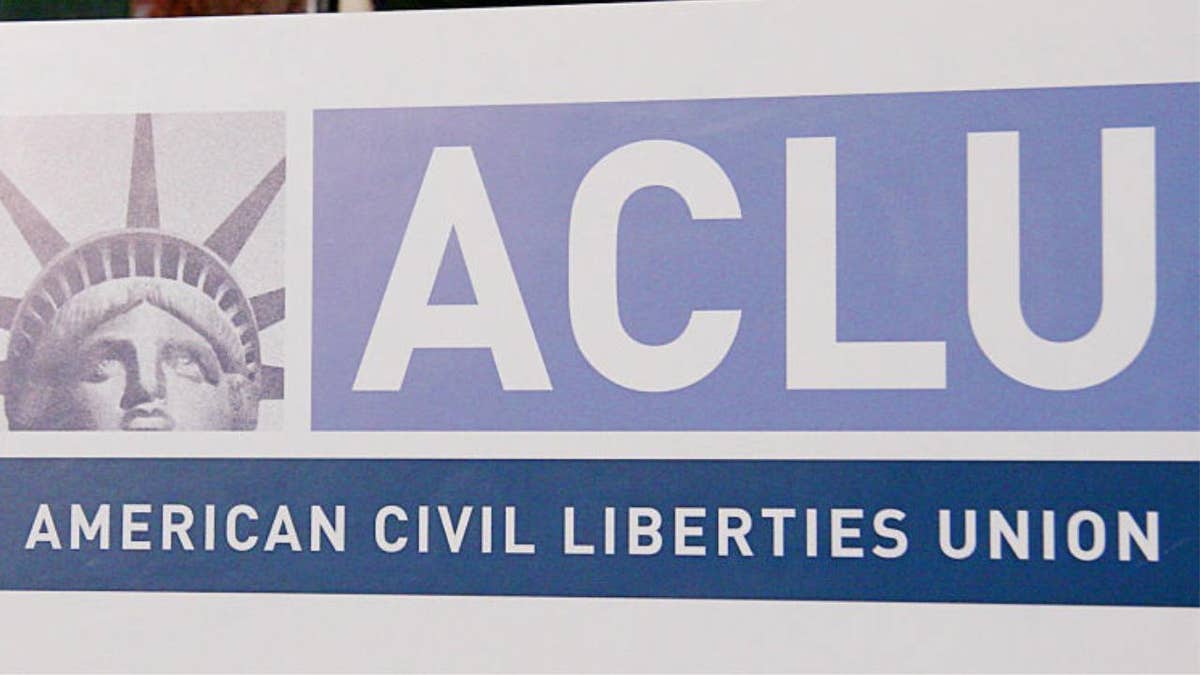
The American Civil Liberties Union has raised privacy and surveillance concerns about the technology. (KAREN BLEIER/AFP via Getty Images)
The ACLU has called for strict privacy rules, usage limits for where drones can be deployed and for police to provide clear information about where and when surveillance drones are being operated.
Mauro said police departments need to figure out how to properly manage public requests, the man hours fetching that type of information might take, and what footage needs to be saved or deleted. He said the same issues came to the fore with the rollout of police body cameras.
CLICK HERE TO GET THE FOX NEWS APP
“The police departments are going to be a blizzard with subpoenas for that footage,” Mauro said regarding drones.
“And I think the real key … is that there has to be significant human interaction with the drone. The drone has to be very subordinate to somebody who’s controlling it, it has to be police in real time watching what’s going on and making decisions and controlling the drone.”
“So look, there are a lot of issues relative to electronic surveillance that go beyond drones, and when you’re talking about a government that implicates the Constitution and the Bill of Rights, and so that makes things that much more volatile and complicated. It’s just something that has to be watched very closely.”
